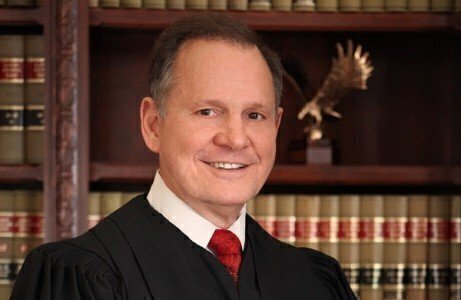The ongoing debate in Alabama over implementing a federal court decision about same-sex marriages is resurfacing some familiar constitutional issues.

As of Tuesday, some, but not all, same-sex couples seeking marriage licenses in Alabama were receiving them. The United States Supreme Court allowed the marriages to proceed on Monday by staying an order to put them on hold that came from Alabama State Attorney General Luther Strange.
Three Justices of different stature have framed the debate in different ways.
Supreme Court Associate Justice Clarence Thomas rarely speaks in Court, but he wrote a dissent to the Monday stay decision that put the long national debate over federalism into context.
Thomas said his fellow Justices looked "the other way as yet another federal district judge casts aside state laws” and that "this acquiescence may well be seen as a signal of the court's intended resolution of [the same-sex marriage] question." Thomas was joined by Associate Justice Antonin Scalia in his dissent.
“Today’s decision represents yet another example of this Court’s increasingly cavalier attitude toward the States,” Thomas wrote.
The constitutional issue involves the proper role and supremacy of the federal and state court systems, which have clashed since the Founders’ time over various jurisdictional issues.
In the case of Alabama, its voters had approved a same-sex marriage ban by a wide margin in 2006. But after the Supreme Court’s decision in the United States v. Windsor case in June 2013, efforts started in Alabama, as in other states, to have federal and state courts overturn the bans based on the logic used in the Windsor decision written by Associate Justice Anthony Kennedy (and supported in a dissent from Scalia).
Federal Judge Callie V.S. Granade of the Southern District of Alabama struck down the state’s marriage ban in January, but then Alabama Supreme Court Chief Judge Roy Moore told judges who allowed same-sex marriages in the state that they were “in defiance of the laws and constitution of Alabama."
Moore cited a Alabama state supreme court decision that said his court “is not bound by decisions of the United States Courts of Appeals or the United States District Courts.”
After the United States Supreme Court didn’t accept Alabama State Attorney General Luther Strange’s appeal to put same-sex marriages on hold, Alabama Chief Judge Moore took the step of telling the state’s probate judges to refuse marriage licenses to same-sex couples.
“It's my duty to speak up when I see the jurisdiction of our courts being intruded by unlawful federal authority,” Moore said.
For now, the struggle heads back to Federal Judge Granade’s courtroom on Thursday as some same-sex couples get licenses, some don’t and some probate offices remain closed.
The struggle comes close to the 50th anniversary of the famous Selma march that has in part defined the state’s civil rights legacy in March 1965.
Alabama’s Governor, Robert Bentley, said in an interview with the Associated Press on Tuesday that the current situation won’t turn into another Selma and he wants the problem solved in “proper legal channels.”
"I don't want Alabama to be seen as it was 50 years ago when a federal law was defied. I'm not going to do that," Bentley said. "I'm trying to move this state forward."
Constitution Daily contributor Lyle Denniston presented much of this scenario for us late last month in a Constitution Check analysis, where he said ultimately the Supreme Court could settle the issue.
“Chief Judge Moore, although right on the basic independence of the state judiciary, may well speak for few officials in state government in saying that it is ‘judicial tyranny’ for a federal court to issue a decision striking down a provision of a state constitution. The 10th Amendment does not deny the authority of the federal courts to decide constitutional questions,” Denniston said.
Denniston said any appearance of a state-federal constitutional crisis would end in Washington.
“The only place where such a constitutional crisis could be ended would be the Supreme Court. Its authority to say what the Constitution commands would settle the matter. Even Chief Judge Moore, in his defiant comment about the same-sex marriage rulings, did not suggest that the state courts could refuse to obey the Supreme Court.”






